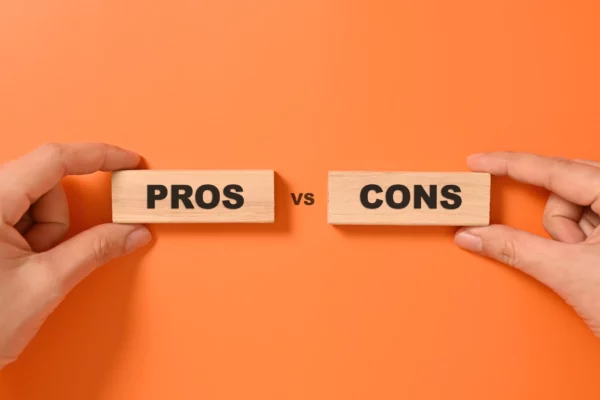Making Informed Choices in a California Divorce
Going through a divorce is never an easy journey. It’s a challenging time filled with emotional highs and lows, complicated decisions, and a whirlwind of legal procedures. One common question many face is: “What are the pros and cons of divorce mediation in California?” It’s important to understand your options, especially if you want to make the process as smooth as possible. And that’s where professional guidance becomes indispensable.
Here at 805 Law Group, located in San Luis Obispo, CA, we’ve been helping families navigate the often complex world of divorce and family law for years. Our experience allows us to provide you with the personalized attention and advice you need during this difficult time.
Mediation can offer a less confrontational and often more cost-effective route to divorce, but it’s not suitable for everyone. In this article, we’ll break down the pros and cons to help you make a more informed decision that fits your unique situation.
Don’t go through this challenging period alone. Reach out to us at 805 Law Group and allow our experienced family law attorneys to guide you every step of the way.
What is Divorce Mediation?
Divorce mediation is a process where you and your soon-to-be ex-spouse sit down with a neutral third party, known as a mediator. The goal is to resolve issues like property division, child custody, and spousal support, among others. Instead of leaving these important matters to the unpredictability of a court trial, mediation aims for a more collaborative approach. The process offers a setting where you can express your views, listen to your spouse’s, and negotiate terms that work best for both parties.
Being in San Luis Obispo, CA, we’ve found that many local couples opt for divorce mediation because of its more personal nature and cost-effectiveness compared to traditional litigation. But it’s not a one-size-fits-all solution. Your individual circumstances, such as the level of conflict between you and your spouse or your mutual willingness to negotiate, can significantly influence the success of mediation.
If done correctly, divorce mediation can be a life-changing experience that sets a positive tone for your post-divorce relationship. However, the outcome often hinges on proper preparation and experienced advice.
Are you considering mediation as an option for your divorce in the San Luis Obispo area? Consult with 805 Law Group to assess if it’s the right fit for you.
What are the Pros and Cons of Divorce Mediation in California?
Choosing the right approach to divorce can significantly affect the journey and its outcomes. Divorce mediation in California has emerged as a popular alternative to traditional courtroom battles, emphasizing collaboration and mutual understanding. Before diving into its advantages and disadvantages, it’s essential to grasp why many Californian couples are considering this method. Here’s a closer look at the pros and cons to help guide your decision.
Pros of Divorce Mediation:
Cost-Effective Compared to Litigation:
The financial toll of a divorce is a major concern for many couples, especially when considering the multiple fees associated with traditional courtroom procedures. These fees can range from:
- attorney fees;
- court costs; and
- charges for expert witnesses if the case drags on.
In contrast, mediation serves as a more budget-friendly alternative. This collaborative approach expedites the divorce process, reducing overall expenses. Notably, couples usually share the cost of a single mediator rather than hiring individual attorneys, making it a cost-effective choice compared to traditional litigation.
Faster Process:
Mediation offers a streamlined approach to divorce, primarily because it sidesteps the often lengthy court system. Traditional divorce proceedings can become drawn out with multiple court dates, sometimes delayed due to court backlogs or scheduling conflicts.
In contrast, mediation allows couples to set their own timelines, working together to find resolutions without the constraint of court availability. As a result, parties can finalize their divorce more quickly, granting them the freedom to begin their next life chapter without unnecessary delay.
Flexible & Personalized:
Mediation offers a customized approach to divorce, prioritizing individual needs and circumstances. Unlike the strict procedures of courtrooms, mediation gives couples the freedom to discuss and negotiate on their terms.
Solutions are crafted based on each couple’s unique situation, ensuring agreements that align with their preferences and concerns. This personalized method leads to more meaningful outcomes, promoting a better understanding and mutual satisfaction between parties.
Preserve Relationships:
Navigating a divorce can strain relationships, but mediation offers a path that prioritizes open dialogue and understanding. This process fosters an environment where couples actively listen and communicate their needs, reducing the chances of misunderstandings or further discord.
For couples transitioning into co-parenting roles, this emphasis on effective communication proves invaluable. By learning to address concerns in a collaborative setting, ex-partners are better equipped to work together in their ongoing roles as parents, ensuring a healthier dynamic for themselves and their children.
Cons of Divorce Mediation:
Potential for Unresolved Issues:
While mediation offers a platform for open dialogue, it’s not a guaranteed solution for all disputes. Some conflicts, especially those deeply rooted in longstanding disagreements or complex financial matters, may remain unresolved even after multiple mediation sessions.
In such cases, couples might find themselves back at square one, requiring the structure and formal decision-making of the court to find a resolution. This potential pitfall emphasizes the importance of understanding one’s unique circumstances and weighing whether mediation is indeed the best approach.
Need for Mutual Cooperation:
Mediation’s foundation rests upon the twin pillars of collaboration and compromise. For it to be truly effective, both parties must approach the table with an open mind, ready to understand and be understood. A single party’s reluctance or refusal to cooperate can stall the entire process, turning what should be constructive discussions into stagnant standoffs.
Without a mutual willingness to find common ground, mediation can quickly transform from a potential path to resolution into a road filled with obstacles, emphasizing the critical role each party plays in the process’s success.
Lacks the Structure of Formal Proceedings:
Mediation offers a more relaxed environment, free from the strict rules characteristic of traditional courtrooms. While many appreciate this flexibility, others may find it unsettling. The absence of formal procedural rules can, for some, feel like navigating uncharted waters. They might miss the predictability and order provided by court proceedings, where every step is governed by established laws and practices.
For individuals seeking the security of a well-defined structure during their divorce process, the informality of mediation might come across as less reassuring, highlighting the importance of aligning one’s comfort level with the chosen way of divorce resolution.
No Dedicated Negotiator:
Mediation puts you in the driver’s seat, which works well for those comfortable navigating legal matters on their own. While mediators are knowledgeable in law-related issues, they cannot offer you personal legal advice. Some mediators may allow attorneys in the sessions, but others discourage it to maintain balanced negotiations.
If you’re keen on mediation but also want legal advice, consider consulting an attorney outside the mediation process. This way, you’re empowered to make well-informed decisions without compromising the collaborative nature of mediation.
Can Be Pricier Than DIY Divorce:
While it might be tempting to opt for a DIY divorce to save money, remember that going it alone means you’ll navigate legal complexities without professional guidance. Sure, you’ll sidestep mediation fees, but if your divorce involves more than just ending the marriage, you might find yourself in hot water.
For instance, you could agree to a division of assets or alimony payment only to realize later you’ve misunderstood the legal or financial ramifications. In such scenarios, the slightly higher cost of mediation could actually be a smart investment in the long run.
Not Ideal for Imbalanced Power Dynamics:
Mediation thrives on balanced dialogue, but it might not be the best fit for couples where there’s a significant power imbalance. In cases where one party tends to dominate conversations or decision-making, the odds of arriving at a fair and mutually beneficial agreement diminish.
This could manifest in various ways, such as one person pressuring the other into unfavorable financial settlements or custody agreements. In situations like these, traditional legal routes that offer a more structured negotiation process may offer a better chance at a just outcome.
Call Our Divorce Attorneys Now for Legal Advice!
Embarking on a divorce journey and wondering, “What are the pros and cons of divorce mediation in California“? The 805 Law Group in San Luis Obispo, CA, is here to clarify the answers provided in this article and guide you every step of the way. But our skills continue beyond family law.
For those recovering from a personal injury, we’ll work diligently to ensure you get the compensation you deserve. If you’re caught in a criminal legal bind, count on our criminal defense know-how. And when it comes to securing your future, our estate planning skills are second to none. Reach out to us today to make your journey through any legal issue a smoother one.


